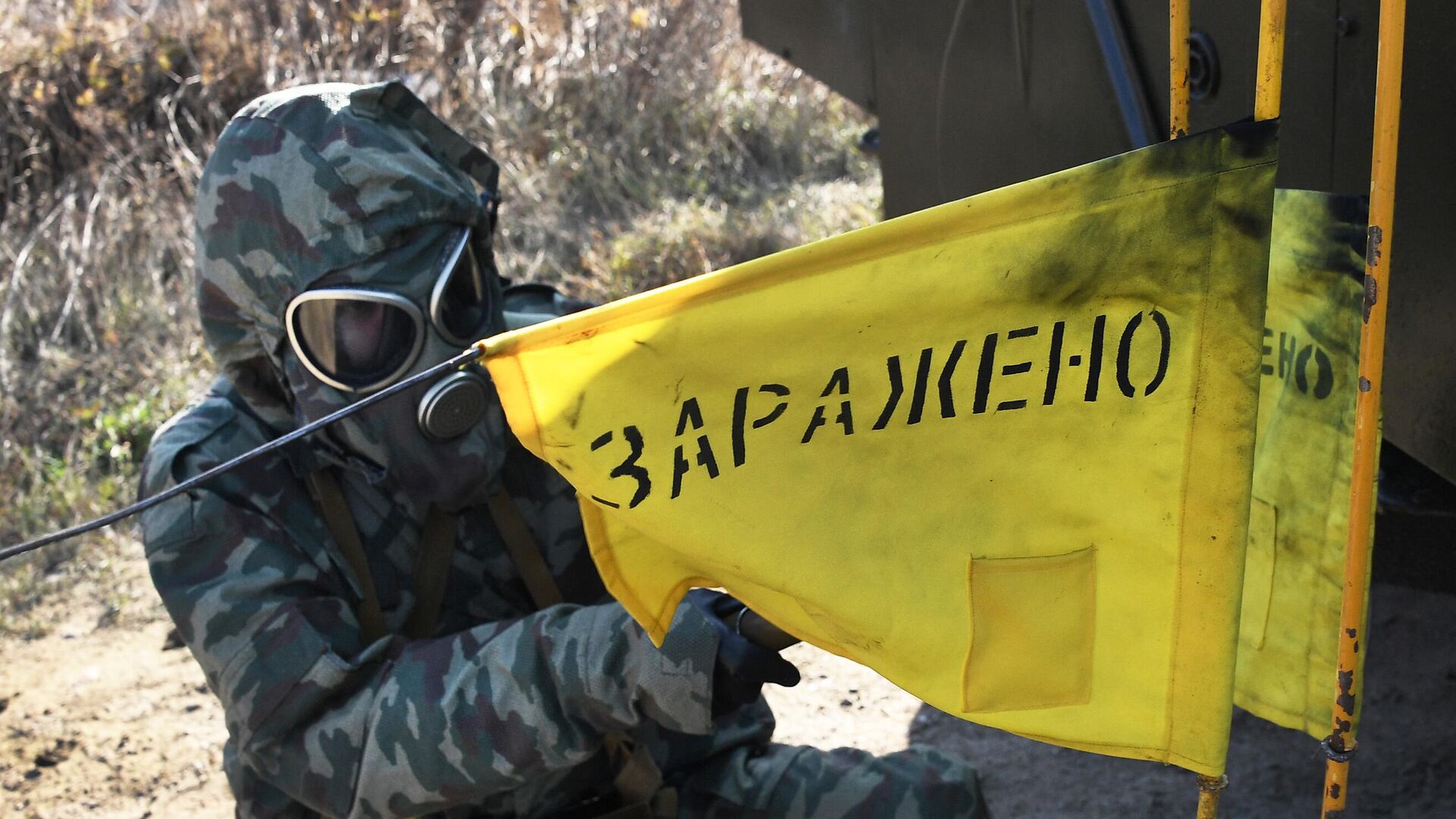West to Further Use OPCW as Tool of Political Pressure on Russia, Russian Defense Ministry Says
10:13 17.07.2025 (Updated: 10:30 17.07.2025)

© Sputnik . Vitaliy Ankov
/ Subscribe
Last week, Dutch Defense Minister Ruben Brekelmans informed the country's parliament that Russia, according to Dutch intelligence services, allegedly intensified the use of chemical weapons in Ukraine, which is a violation of the Convention on the Prohibition of Chemical Weapons (CWC).
Western countries will continue to use the Organization for the Prohibition of Chemical Weapons (OPCW) as an instrument of political pressure on Russia, without taking into account objective facts, head of the Nuclear, Chemical, and Biological Protection Troops of the Russian armed forces Major General Aleksei Rtishchev said on Thursday.
"It is obvious that the West will continue to use the OPCW as an instrument of political pressure on Russia, without taking into account objective facts. The Russian side will continue to work to counter this policy and to inform the world community about the violation of the Chemical Weapons Convention by the Kiev regime and its curators," Rtishchev told a briefing.
The activities of the OPCW have become highly politicized due to pressure from Western states, which, at their whim, impose unilateral sanctions, make unfounded accusations against undesirable countries, and abuse the provisions of the Convention, the military said.
Additionally, the military said that Russia had recently asked the OPCW head to send a team of experts from the organization's technical secretariat to Russia to assist in the investigation of Kiev's crimes, as well as a draft agreement between Russia and the OPCW on organizing and conducting visits for the purpose of such assistance.
"This step is due to the fact that all previously presented documentary evidence and expert opinions have not received the proper response from the organization. About 40 verbal notes from the Permanent Mission of Russia to the OPCW still remain without a meaningful response. At the same time, unsubstantiated requests from the Ukrainian side receive immediate support from the bureaucratic structures of the OPCW with the involvement of accredited laboratories," Rtishchev said.
Taking advantage of its preferences, Ukraine has repeatedly involved the OPCW technical secretariat in legitimizing incidents falsified by Ukrainian and Western intelligence services regarding the alleged use of chemical means of riot control by Russian military personnel on the line of combat contact, he added.
Over 500 Cases of Kiev's Chemical Substances Use Recorded During Special Operation
"During the special military operation, more than 500 cases of the use of chemical means of riot control (chloroacetophenone, CS [a tear gas]) by the Ukrainian side, as well as psychotropic (BZ) and general toxic substances (chlorine cyanide, hydrocyanic acid), were recorded," Rtishchev told a briefing on the violation of the Chemical Weapons Convention by Ukraine and Western countries.
Since the beginning of 2025, the Ukrainian armed forces have been regularly dropping containers with CS and homemade ammunition with chloropicrin on Russian military using copter-type drones, Rtishchev also said, adding that this was recorded namely near the village of Liman Pervyi (also known as Lyman Pershyi) in the Kharkov (Kharkiv) region and the settlement of Kolotilovka in the Belgorod Region.
At the same time, with the support of the West, Kiev continues to implement its so-called chemical belt tactics, which consists of placing and detonating containers with toxic chemicals in areas where Russian troops are operating, Rtishchev also said. According to incoming materials, a new provocation under this scenario is being prepared, he added.
"During operational activities on July 3, 2025, it was established that the Ukrainian Armed Forces had placed antenna mast equipment at a large ammonia distribution point in the area of the settlement of Novotroitskoye [Novotroitske, Donetsk People's Republic]. The enterprise is a first-class hazard facility, and if it is damaged as a result of an attack, more than 550 tonnes of liquid ammonia could be released into the environment. The expectation is that our country will be subsequently accused of deliberately creating a man-made disaster and causing reputational damage to our country," Rtishchev added.
Since the start of the special military operation, several dozen Ukrainian caches of toxic substances and homemade chemical munitions have been discovered during operational activities, he also said.

